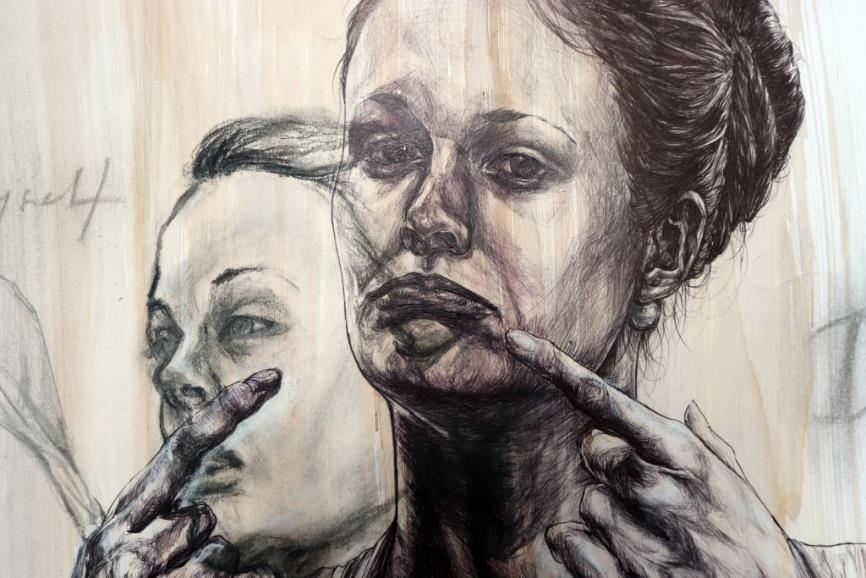
4 minute read
CLASSICAL LANGUAGES LATIN - STANDARD & HIGHER LEVEL
CLASSICAL LANGUAGES LATIN - STANDARD & HIGHER LEVEL
Aims
• To demonstrate competence in understanding, translation, and appreciation of texts in the original language • To demonstrate a knowledge of different genres, techniques and styles of literature studied partly in the original language and partly in translation • To demonstrate knowledge that supports an appreciation of the texts in their historical and cultural contexts • To demonstrate an ability to collect and analyse relevant information independently and to present it clearly • To develop students’ awareness of the role of language in relation to other areas of knowledge • To provide the opportunity for enjoyment, creativity and intellectual stimulation through knowledge of a language • To develop students’ awareness of the relationship between languages ad culture
Course description
At this stage, much of the grammar has been studied already, so students will concentrate on reviewing this and being introduced to various texts from the rich literature of classical Rome. They will find that they are able to extend their knowledge of Roman civilisation through close reading and discussion of this literature. There are three areas of exploration within the course
Meaning, form and language
• This deepens students’ linguistic knowledge and hones grammatical knowledge. • This develops students’ skills to read and translate with accuracy and flair.
Text, author and audience
• This broadens exposure to significant works of literature. • This refines and sharpens students’ skills of critical and literary analysis.
Time, space and culture
• This makes connections between sources and ideas produced in different times and places. • This explores how historical and cultural factors shape the production and reception of texts.
Assessment
• The unseen language paper (35% SL / 30% HL) will build on translation skills developed at IGCSE, but a dictionary is allowed at IB Level. • The literature paper (35% SL / 30% HL) will continue to refine the literary analysis skills developed at IGCSE • Coursework (30% SL / 20% HL) will consist of a short “research dossier” on any topic of Roman life.
• HL students prepare an addition composition of 100 – 120 words of original Latin (20%
HL only).
Requirements
In Latin it is a fundamental principle that the texts should be studied in the original language and therefore that students’ linguistic ability should be at the appropriate level to be able to achieve this. Further parts of the same texts along with others are studied in translation, within their cultural context, to widen a student’s understanding of classical literature, history and the symbiosis between them. At both Higher and Standard Level, the internal assessment “Individual Study” component will enable candidates to study independently, in depth, an aspect of ancient language, literature and civilisation that they find of particular interest. You should also be prepared to be well organized, and to work conscientiously and independently over the two-year period.
Potential careers
This course will allow for strong university and employment prospects. Gaining a good grade in Latin is viewed as excellent proof of a student’s academic and intellectual abilities by admission tutors in a wide range of university disciplines, such as Law, Medicine, Classics, History, Politics, Modern and Oriental Languages, Archaeology, Theology and English. The most prominent areas of employment for Classicists are:
• finance, banking, insurance, accountancy • marketing and related areas • management, administration, civil service, law • the arts, journalism, publishing, education • computer sciences
5 TERM OVERVIEW
Core Content taught over 5 terms: STUDY OF LANGUAGE
Students will study a prescribed author to develop language skills.
STUDY OF LITERATURE
HL students answer questions on two core texts chosen from the list below SL students answer questions on one core text chosen from the list below
• Cicero • Livy • Virgil • Ovid
All students also read two companion texts from this list to broaden their knowledge of the Roman world, and to support their knowledge of the core texts or as a springboard for their Internal Research Dossier or HL composition
• Aulus Gellius Noctes Attica • Catullus Carmina
SL/HL External Assessment:
SL/HL Internal Assessment:
HL only Prose
• Eutropius Breviarium Historiae Romanae • Horace Odes • Pliny the younger Letters • Sallust Bellum Iugurthinum • Seneca De Clementia • Ovid Heroides • Tibullus Elegies SL: 70% of course grade HL: 60% of course grade
Paper 1 SL students translate and answer questions on one passage from the set author HL students answer questions on two unseen passages from the set author
Paper 2 SL students answer questions on one core set text HL students answer questions on two core set texts 30% SL 20% HL
Individual study on any aspect of Roman civilisation, internally assessed, and externally moderated. • Students choose an aspect of classical studies which interests them to research and write on.
HL: 20%
Latin composition task • 100–120-word original piece of writing in Latin, with student review and rational.
Contact for further information:
Mrs Hannah Dech: hannah.dech@tts.edu.sg








